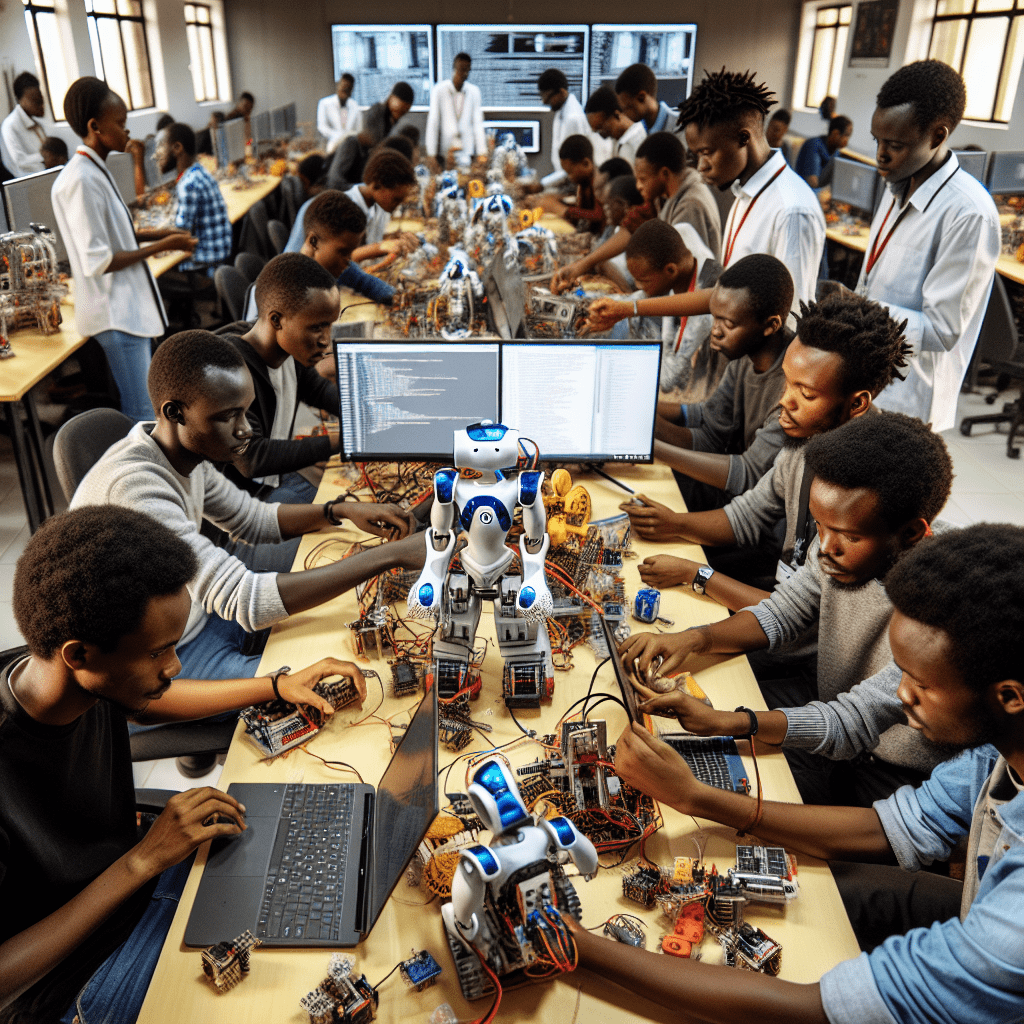Table of Contents
In a world where artificial intelligence (AI) is rapidly transforming industries and societies, Kenya is emerging as a hub of innovation in Africa. The country’s universities are at the forefront of this revolution, harnessing the power of AI to bridge the education gap, enhance learning experiences, and prepare students for the future of work. This article delves into the remarkable ways Kenyan universities are adapting AI technologies to democratize education and drive socio-economic development.
The Need for AI in Kenyan Education
Kenya, like many developing countries, faces significant challenges in providing equitable access to quality education. With a growing population and limited resources, traditional educational models struggle to meet the diverse needs of learners. However, the advent of AI presents a transformative opportunity to address these challenges head-on.
Dr. Bitange Ndemo, a professor at the University of Nairobi and former Permanent Secretary of Kenya’s Ministry of Information and Communication, emphasizes the urgency of embracing AI in education. “AI has the potential to revolutionize how we teach and learn in Kenya,” he states. “By leveraging AI technologies, we can personalize learning, reach more students, and equip them with the skills they need to thrive in the digital age.”

Personalized Learning through AI
One of the most promising applications of AI in Kenyan universities is personalized learning. By utilizing machine learning algorithms and adaptive learning platforms, educators can tailor the learning experience to the unique needs and abilities of each student.
Strathmore University, a leading institution in Nairobi, has been at the forefront of this approach. They have developed an AI-powered learning management system that analyzes student data, identifies knowledge gaps, and recommends personalized learning paths. This system has shown remarkable results in improving student engagement and performance.
Dr. Joseph Sevilla, Director of the @iLabAfrica Research Centre at Strathmore University, explains, “Our AI-driven personalized learning platform has enabled us to provide targeted support to students, regardless of their background or learning style. It has been a game-changer in ensuring that no student is left behind.”
Expanding Access to Education
Another critical aspect of AI adaptation in Kenyan universities is the expansion of access to education. With the proliferation of mobile devices and internet connectivity, AI-powered online learning platforms are making education more accessible than ever before.
The University of Nairobi has been a pioneer in this regard, partnering with international organizations to develop massive open online courses (MOOCs) that leverage AI to provide high-quality education to learners across the country. These courses cover a wide range of subjects, from computer science to entrepreneurship, and are designed to be accessible and engaging for learners from diverse backgrounds.

Professor Elijah Omwenga, Deputy Vice-Chancellor of the University of Nairobi, highlights the impact of these initiatives. “Through our AI-powered MOOCs, we have been able to reach thousands of learners who would otherwise have limited access to higher education. It’s a powerful tool for promoting inclusivity and driving social mobility.”
Preparing Students for the Future of Work
As AI continues to transform industries, Kenyan universities recognize the importance of preparing students for the future of work. This involves not only teaching technical skills but also fostering critical thinking, creativity, and adaptability.
Kenyatta University has taken a proactive approach in this regard, establishing an AI and Robotics Centre of Excellence. The centre provides students with hands-on experience in developing AI solutions for real-world challenges, from agriculture to healthcare.
Dr. Kamau Gachigi, Executive Director of the AI and Robotics Centre, emphasizes the importance of practical experience. “By exposing our students to cutting-edge AI technologies and real-world projects, we are equipping them with the skills and mindset they need to thrive in the era of AI. They are not just consumers of technology, but creators and innovators.”

Ethical Considerations and Responsible AI
As Kenyan universities embrace AI, they are also grappling with the ethical implications and the need for responsible AI development. There is a growing recognition that AI must be developed and deployed in a way that promotes fairness, transparency, and accountability.
The Aga Khan University has been leading the charge in this area, establishing a Centre for Ethics and Responsible AI. The centre conducts research on the ethical dimensions of AI and provides guidance to developers and policymakers on responsible AI practices.
Dr. Alex Awiti, Director of the Centre for Ethics and Responsible AI, emphasizes the importance of values-driven innovation. “As we harness the power of AI in education and beyond, we must ensure that it aligns with our values and serves the greater good. Responsible AI is not just a technical challenge, but a moral imperative.”
Collaborating for Impact
Recognizing that the challenges and opportunities of AI in education are too vast for any single institution to tackle alone, Kenyan universities are increasingly collaborating with each other and with international partners.
The Partnership for African Research and Innovation in AI (PARIA), a consortium of Kenyan and international universities, is a prime example of this collaborative spirit. PARIA brings together researchers, educators, and industry partners to advance AI research and education in Kenya and across Africa.
Dr. Tonny Omwansa, Coordinator of PARIA, highlights the power of collaboration. “By pooling our expertise and resources, we can accelerate the development and deployment of AI solutions that address the unique challenges facing African education. Together, we can build a brighter future for all.”
The Way Forward
The adaptation of AI in Kenyan universities is a testament to the country’s commitment to harnessing technology for social good. By leveraging AI to personalize learning, expand access to education, prepare students for the future of work, and promote responsible innovation, these institutions are setting a powerful example for the rest of Africa and the world.
However, the journey is far from over. As AI continues to evolve at a rapid pace, Kenyan universities must remain agile and responsive to new challenges and opportunities. This will require sustained investment in research, infrastructure, and capacity building.
It will also require a collaborative and inclusive approach, ensuring that the benefits of AI in education are distributed equitably and that no one is left behind. By working together across disciplines, sectors, and borders, Kenyan universities can continue to lead the way in bridging the education gap and building a brighter future for all.